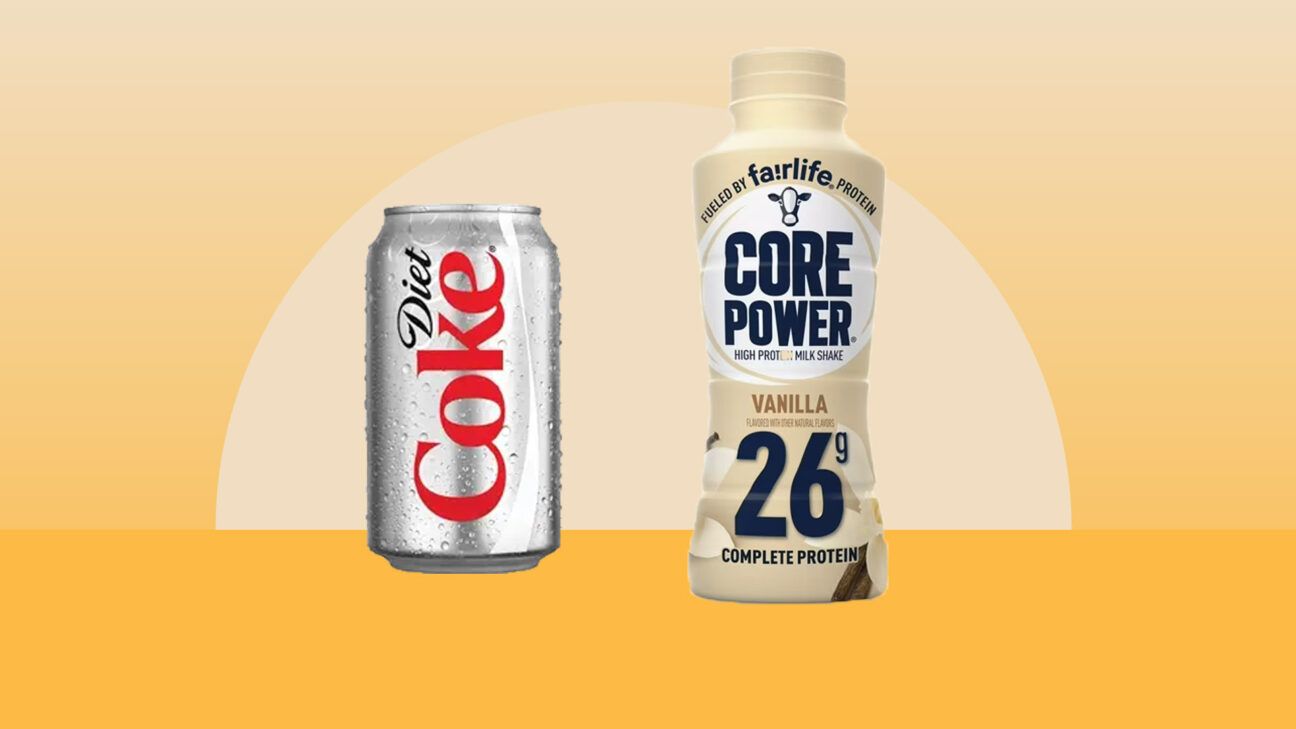

Share on Pinterest
- The Protein Diet Coke trend is sweeping through social media, particularly TikTok.
- This drink is generally created by blending a diet soda with a flavored protein shake.
- Experts in health and nutrition indicate that while this drink can help those looking to up their protein intake, combining Diet Coke with a protein shake doesn’t enhance its nutritional profile.
- Health professionals advocate for a balanced diet filled with natural high-protein foods, especially for those aiming to lose weight.
The Protein Diet Coke is the latest beverage sensation captivating TikTok users.
Despite its name, Protein Diet Coke isn’t an official Coca-Cola product; it’s essentially a mix of a vanilla protein shake and Diet Coke.
Utah elementary school teacher Rebecca Gordan played a significant role in popularizing this drink after a video of her enjoying it went viral on TikTok.
Since then, countless users have posted videos trying the drink and sharing their own variations, accumulating millions of views as many rave about it as a tasty way to meet protein goals.
But is this popular drink truly a “healthy” method of increasing your protein intake?
Healthline consulted nutritionists to dissect the benefits and drawbacks of Protein Diet Coke and determine if this viral drink is something you should try or avoid.
The Protein Diet Coke is part of the “dirty soda” trend that surged in popularity in 2022.
A typical “dirty soda” features a base soft drink combined with flavored syrups, creams, or fruit juices—think of it as a non-alcoholic mocktail.
Protein Diet Coke usually consists of just two simple ingredients: your choice of diet soda and a bottle of ready-made protein shake.
“I wouldn’t categorize Protein Diet Coke as a health drink, but I don’t consider it unhealthy either,” says Destini Moody, a registered dietitian with Top Nutrition Coaching.
“It seems a bit peculiar to mix ready-to-drink protein with soda when you could simply consume the protein directly. The soda doesn’t provide any real benefits since it lacks calories, protein, or micronutrients.”
However, Moody points out that supplementing your diet with whey protein shakes can be a nutritious strategy, particularly if you’re working to boost your protein intake.
She personally recommends Fairlife Core Power protein shakes, a common ingredient in many TikTok #proteindietcoke creations.
“They deliver a substantial amount of high-quality protein along with essential amino acids and half of your daily calcium needs, which can help keep you satisfied between meals,” Moody explains.
Research indicates that consuming higher protein levels can assist with weight loss while preserving and building muscle mass.
Protein has been shown to enhance the production of hormones like GLP-1 and PYY, which promote feelings of fullness.
Moreover, it can help reduce levels of ghrelin, often referred to as the “hunger hormone.”
Moody believes that when combined with a healthy diet and regular physical activity, Protein Diet Coke may contribute to weight loss, if consumed sparingly.
“Incorporating more protein via whey shakes is an excellent way to build muscle and lose weight, so if mixing it with Diet Coke encourages protein consumption, I support that,” she adds.
“Using this drink between meals can help stave off cravings, making it a better choice than high-calorie snacks that can leave you feeling hungry soon after.”
However, she emphasizes that it’s preferable to simply consume the protein shake alone.
“The Diet Coke doesn’t contribute any benefits for muscle building or weight loss; I’d consider it more of a flavor enhancer,” she concluded.
While enjoying drinks like Protein Diet Coke in moderation can help boost your protein intake, Michelle Routhenstein, a preventive cardiology dietitian, advises that an overall healthy diet should take precedence.
“For sustainable muscle growth and weight loss, it’s more beneficial to focus on balanced meals after workouts to ensure you’re getting all necessary nutrients. This method yields better long-term results and supports optimal recovery,” she says.
She warns that relying solely on protein shakes as meal replacements might lead to nutritional deficiencies, hinder recovery, and potentially increase oxidative stress, negatively affecting muscle repair.
- lean meats
- fish
- eggs
- dairy
- legumes
- nuts
- seeds
Instead of opting for Protein Diet Coke as a source of protein, Routhenstein suggests healthier alternatives such as Greek yogurt, hard-boiled eggs, or edamame.
However, if you decide to include protein shakes in your diet, Moody recommends enhancing them with nutritious natural ingredients.
“I enjoy blending strawberry Core Power shakes with frozen strawberries, bananas, Greek yogurt (for an extra protein boost), and chia seeds,” Moody shares.
“This combination provides fiber, antioxidants, omega-3 fatty acids, and additional micronutrients like calcium and Vitamin C, alongside the protein.”
Have you come across the latest craze known as Protein Diet Coke? This inventive beverage is making waves on social media, particularly on TikTok where users are mixing diet sodas with flavored protein shakes.
Although Protein Diet Coke might appear as a quick fix for increasing your protein intake, health professionals caution that it doesn’t offer any real nutritional benefits. It’s more advantageous to concentrate on a well-rounded diet rich in whole, natural protein sources if your goal is to enhance your protein consumption, particularly for weight loss.
So, before you dive into the Protein Diet Coke trend, keep in mind that there are healthier and more effective ways to meet your protein needs. Prioritize whole foods to ensure your body receives the essential nutrients required to support your health and fitness aspirations.


